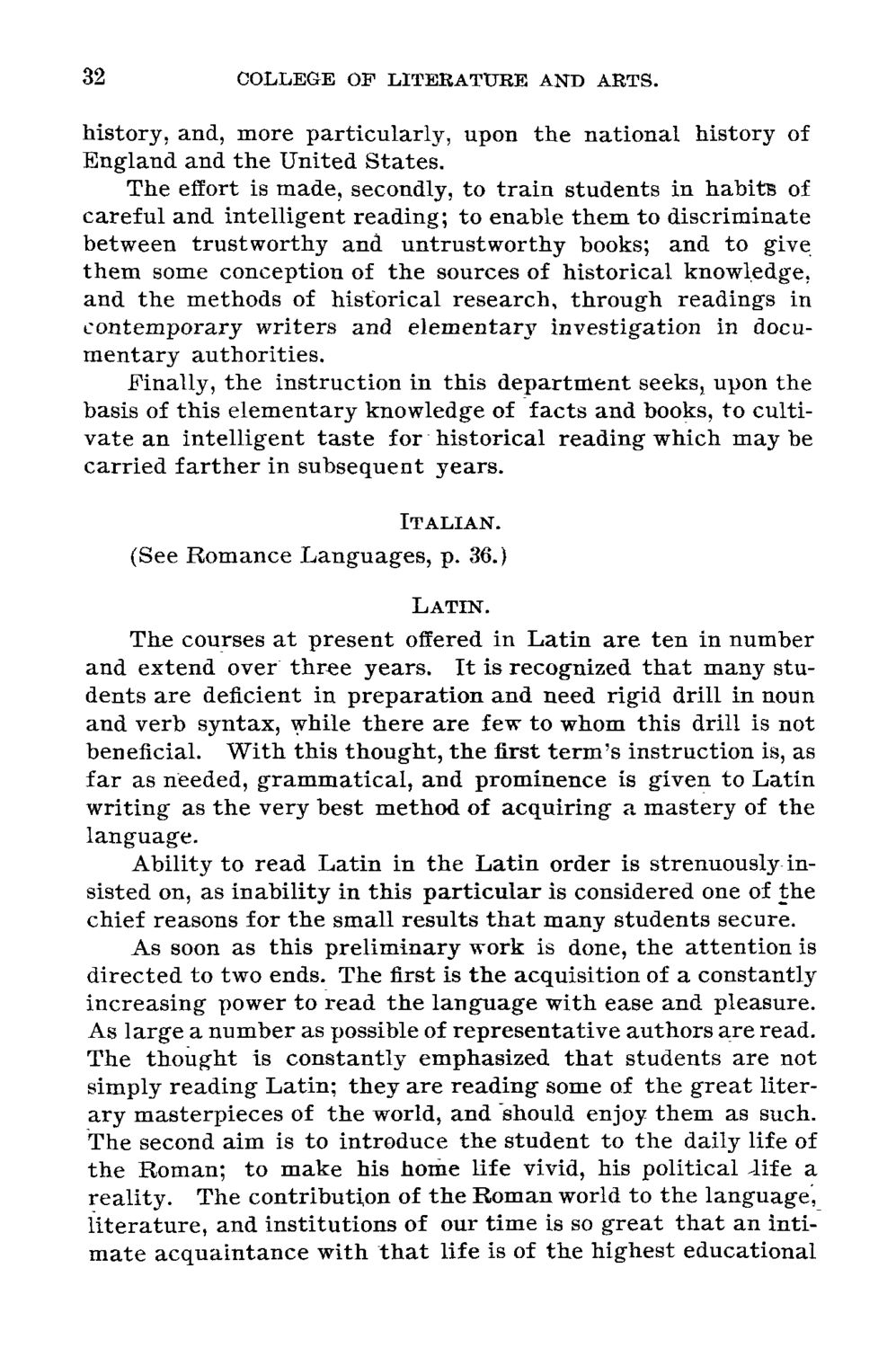| |
| |
Caption: Course Catalog - 1894-1895
This is a reduced-resolution page image for fast online browsing.

EXTRACTED TEXT FROM PAGE:
32 COLLEGE OF LITERATURE AND AETS. history, and, more particularly, upon the national history of England and the United States. The effort is made, secondly, to train students in habits of careful and intelligent reading; to enable them to discriminate between trustworthy and untrustworthy books; and to give them some conception of the sources of historical knowledge, and the methods of historical research, through reading's in contemporary writers and elementary investigation in documentary authorities. Finally, the instruction in this department seeks, upon the basis of this elementary knowledge of facts and books, to cultivate an intelligent taste for historical reading which may be carried farther in subsequent years. ITALIAN. (See Romance Languages, p. 36.) LATIN. The courses at present offered in Latin are ten in number and extend over three years. It is recognized that many students are deficient in preparation and need rigid drill in noun and verb syntax, while there are few to whom this drill is not beneficial. With this thought, the first term's instruction is, as far as needed, grammatical, and prominence is given to Latin writing as the very best method of acquiring a mastery of the language. Ability to read Latin in the Latin order is strenuously insisted on, as inability in this particular is considered one of the chief reasons for the small results that many students secure. As soon as this preliminary work is done, the attention is directed to two ends. The first is the acquisition of a constantly increasing power to read the language with ease and pleasure. As large a number as possible of representative authors are read. The thought is constantly emphasized that students are not simply reading Latin; they are reading some of the great literary masterpieces of the world, and should enjoy them as such. The second aim is to introduce the student to the daily life of the Roman; to make his home life vivid, his political -life a reality. The contribution of the Roman world to the language, literature, and institutions of our time is so great that an intimate acquaintance with that life is of the highest educational
| |